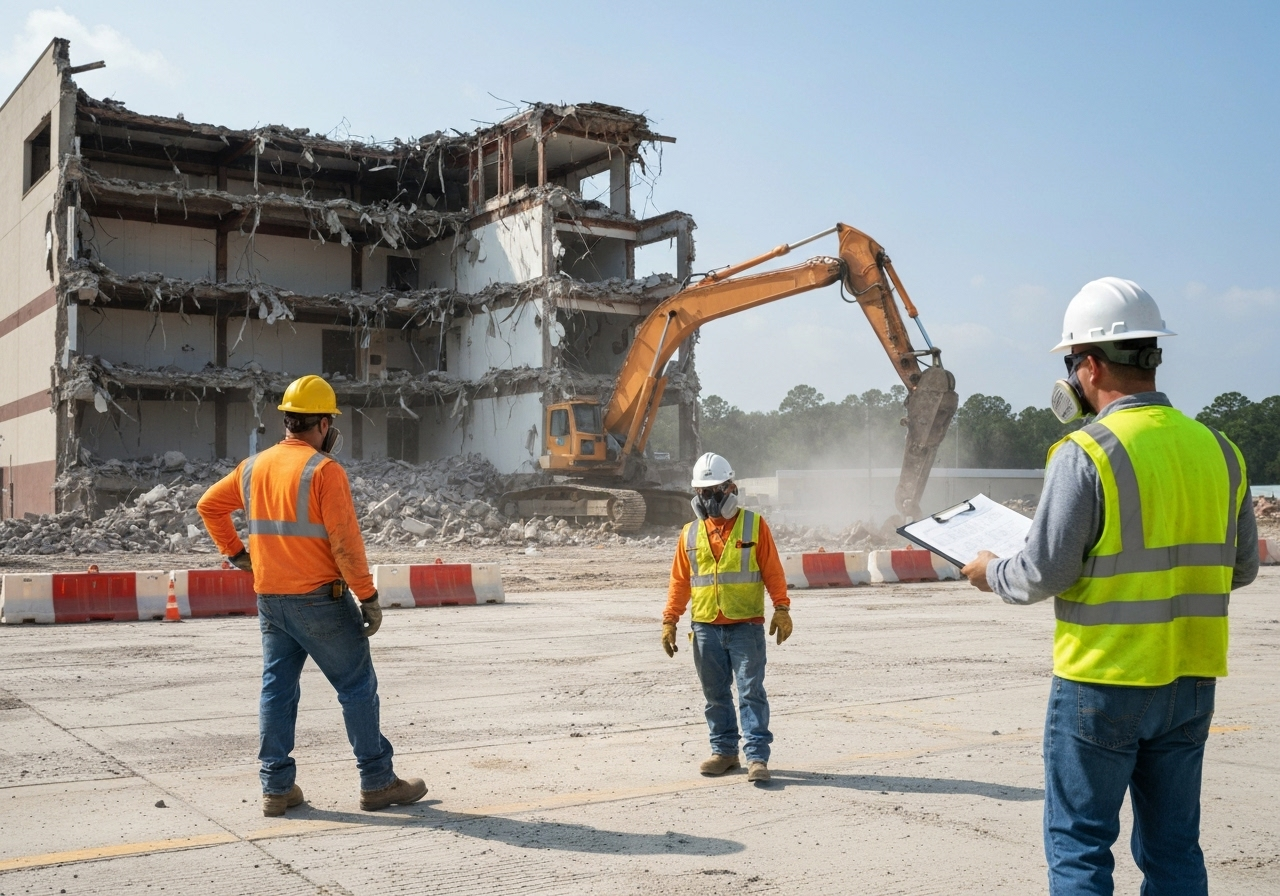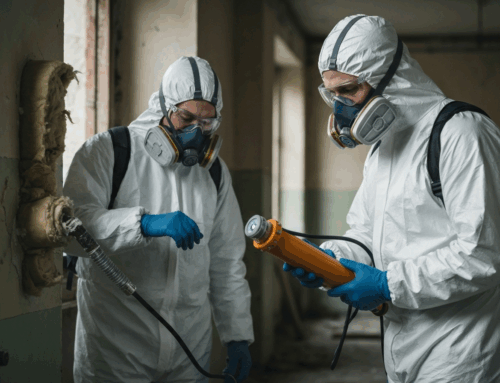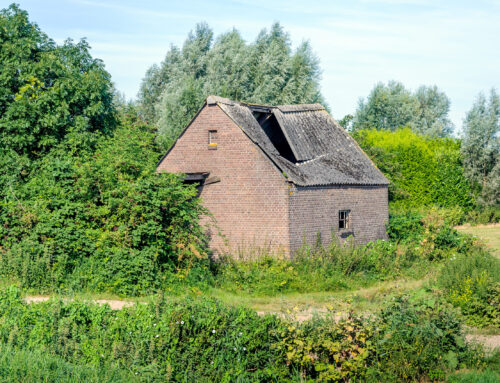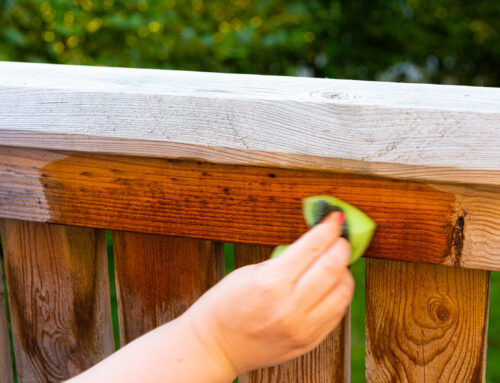Starting Your Demolition Project in South Carolina: The Importance of Compliance
Undertaking a demolition project in South Carolina is a significant undertaking, whether it’s for a residential property or a commercial structure. Beyond the physical aspects of tearing down a building, there’s a critical layer of regulatory adherence that property owners, managers, and contractors must meticulously navigate. Understanding and complying with South Carolina demolition notification and permit requirements is not merely a bureaucratic formality; it’s a foundational element for ensuring safety, protecting the environment, and avoiding severe legal and financial repercussions.
Failure to comply can lead to costly delays, hefty fines, and potential health hazards, particularly concerning asbestos and other hazardous materials. This guide will walk you through the essential steps and regulations to ensure your demolition project in the Palmetto State is safe, efficient, and fully compliant.
Understanding South Carolina Demolition Notification and Permit Requirements
The regulatory landscape for demolition in South Carolina is primarily governed by the South Carolina Department of Environmental Services (DES), formerly part of DHEC, alongside local municipal and county building departments. The DES, particularly its Bureau of Air Quality, plays a crucial role in overseeing projects that may disturb asbestos-containing materials (ACMs).
Key components of the state and local requirements often include:
- Notification to DES: For many demolition projects, a written notification must be submitted to the DES Bureau of Air Quality. This is often required at least ten working days before the demolition begins, even if no asbestos is suspected. This allows regulatory bodies to review plans and ensure compliance, especially with asbestos regulations detailed in SC Code Regs 61-86.1.XVI.
- Asbestos Survey: A thorough asbestos inspection by a state-certified inspector is generally mandatory before demolition for most facilities. The report details the presence, location, and condition of any ACMs.
- Local Building Permits: In addition to state-level environmental notifications, specific demolition permits are required by the local jurisdiction (city or county) where the property is located. These permits address structural safety, zoning ordinances, and proper debris management. For example, the City of Charleston Permit Center and the City of Spartanburg Demolition Application provide insights into local processes.
- Disconnection of Utilities: Before demolition, all utilities (water, sewer, gas, electricity) must be safely disconnected and verified by the respective utility companies.
Navigating these requirements can be complex, and it is highly recommended to consult directly with both the DES and your local building department early in the planning process.
Demolition vs. Renovation in SC: Navigating Different Regulatory Paths
Understanding the distinction between demolition and renovation is critical, as different regulatory frameworks and requirements apply to each. While both involve altering a structure, their scope and potential impact on hazardous materials dictate the necessary permits and notifications.
- Demolition: This refers to the wrecking or removal of any load-supporting structural member of a facility, or any related handling of regulated asbestos-containing material, whether or not the load-supporting structural members are removed. It often implies tearing down all or a significant portion of a building.
- Renovation: This involves altering a facility or one of its components in any way. Renovations can range from minor interior remodels to substantial additions. Even minor renovations can disturb ACMs if they involve materials like drywall, flooring, or ceiling tiles in older buildings.
The key differentiator, particularly concerning environmental regulations, is the potential for disturbing hazardous materials. Even small-scale renovations can trigger asbestos notification and abatement requirements if they involve disturbing regulated hazardous materials. Always verify with the DES if your project, regardless of its classification, might impact asbestos or other hazardous substances.
Asbestos and Hazardous Materials: Mandatory Pre-Demolition Steps in South Carolina
Asbestos is a naturally occurring mineral once lauded for its heat resistance and insulating properties, making it a common building material from the 1950s to the 1980s. However, when disturbed, its microscopic fibers can become airborne and, if inhaled, lead to severe health issues, including lung cancer and mesothelioma. For this reason, South Carolina asbestos removal laws mandate strict protocols for its management during demolition.
Mandatory pre-demolition steps related to hazardous materials include:
- Certified Asbestos Survey: Before any demolition, a state-certified asbestos inspector must conduct a thorough survey to identify all asbestos-containing materials (ACMs). This survey report is crucial for developing a safe demolition plan.
- Notification: If the survey identifies regulated ACMs, or if the demolition meets certain size thresholds, a comprehensive notification must be submitted to the DES. The DES provides specific guidelines for asbestos renovations and demolitions.
- Abatement by Licensed Professionals: All regulated ACMs must be removed by state-licensed asbestos abatement contractors prior to the demolition activities that would disturb them. This ensures proper containment, removal, and air monitoring to prevent fiber release.
- Proper Disposal: All asbestos waste must be packaged, labeled, and transported to a landfill specifically permitted to accept such hazardous materials. Improper disposal is illegal and dangerous.
- Other Hazardous Materials: Beyond asbestos, contractors must identify and safely manage other hazardous materials such as lead-based paint, mercury-containing devices, and refrigerants, in accordance with federal and state regulations.
Ignoring these steps not only endangers health but also incurs significant penalties. For more details on compliance, you can review Piedmont Quality Air’s guidance on navigating SCDES asbestos demolition regulations South Carolina.
Project Scope: Residential vs. Commercial Demolition Rules in SC
While the fundamental principles of safety and compliance apply across all demolition projects in South Carolina, there are notable differences in regulations depending on the project’s scope and the type of property—residential or commercial.
Commercial and Public Buildings:
For commercial, institutional, and public buildings, state and federal asbestos regulations are typically more stringent. These projects almost always require a full asbestos inspection by a certified professional and mandatory abatement of all regulated ACMs prior to demolition. The DES’s oversight is comprehensive, including detailed notification requirements and strict work practice standards. Compliance with the latest South Carolina Building Codes is also essential.
Residential Buildings (Four Dwelling Units or Less):
Single-family homes and residential buildings with four or fewer dwelling units occupied solely as residences often have specific exemptions from some of the stricter federal and state asbestos regulations, such as mandatory pre-demolition inspections. However, this exemption does NOT eliminate the health risks if asbestos is present. Older homes in South Carolina are very likely to contain asbestos in materials like:
- Floor tiles and adhesives
- Ceiling tiles and textured finishes
- Insulation (pipe, attic, boiler)
- Roofing and siding materials
- Drywall and joint compound
Even if not legally mandated for homeowners, it is highly recommended to have suspect materials tested or assume asbestos presence and exercise extreme caution. Proper disposal of any asbestos encountered is always a legal requirement, regardless of property type. Local city ordinances may still require specific permits for residential demolitions, as seen with Charleston’s applications and guidelines.
Who is Responsible? Owner and Contractor Roles in SC Demolition
Ensuring compliance with South Carolina demolition notification and permit requirements is a shared responsibility, primarily between the property owner and the demolition contractor. Both parties have distinct but interconnected obligations that are crucial for a successful and legal project.
Property Owner’s Responsibilities:
- Due Diligence: Owners are ultimately responsible for ensuring that all necessary permits are obtained and that the work is performed according to regulations. This includes ensuring proper asbestos surveys are conducted.
- Hiring Qualified Professionals: Selecting licensed and reputable contractors who are knowledgeable about state and local demolition and hazardous material regulations is paramount.
- Providing Access and Information: Owners must provide contractors with accurate information about the property and grant access for inspections and work.
- Financial Responsibility: Owners are responsible for the costs associated with proper demolition, including hazardous material abatement and disposal.
- Legal Compliance: The owner holds the ultimate liability for non-compliance, even if a contractor handles the day-to-day work. This includes understanding state laws regarding unfit dwellings, as outlined in SC Code Title 31.
Contractor’s Responsibilities:
- Licensing and Certification: Contractors must hold all appropriate state and local licenses and certifications for demolition and hazardous material abatement.
- Accurate Notifications and Permits: Submitting timely and accurate notifications to the DES and obtaining all required local demolition permits.
- Safe Work Practices: Implementing and enforcing strict safety protocols on site, especially concerning hazardous materials, to protect workers and the public.
- Proper Abatement and Disposal: Safely removing, containing, transporting, and disposing of all demolition debris, particularly regulated asbestos-containing materials, at approved facilities.
- Record Keeping: Maintaining detailed records of asbestos surveys, abatement activities, waste manifests, and air monitoring results.
A transparent and collaborative relationship between the owner and contractor, built on a clear understanding of each party’s roles and responsibilities, is key to a smooth and compliant demolition process in South Carolina.
Ensuring a Safe & Compliant Demolition with Piedmont Quality Air
Navigating the intricate web of South Carolina demolition notification and permit requirements can be overwhelming. From distinguishing between renovation and demolition to ensuring meticulous asbestos abatement and proper waste disposal, every step is critical for maintaining safety and adhering to legal mandates.
Piedmont Quality Air specializes in comprehensive hazardous material removal services, including asbestos and mold abatement, critical steps prior to any demolition project. Our team comprises experienced and highly trained professionals who operate with specialized equipment, strictly adhering to all federal and state regulations. We understand the unique environmental considerations in South Carolina and are committed to minimizing disruption while upholding the highest safety standards.
Whether you are a homeowner, property manager, or contractor, partnering with a trusted expert like Piedmont Quality Air ensures your demolition project proceeds confidently, safely, and in full compliance with the law. We are dedicated to providing the expertise necessary for a healthy and safe environment, from initial assessment to final site clearance.
Visit our Contact Us page.





